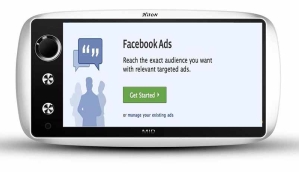
For as long as the Internet has existed, the most common model for generating revenue has been ads which, when clicked, pay out tiny amounts of money. Based on a major mobile media conference this week and recent news from Facebook, that model is about to change.
The rapid rise of advertising for the mobile platform is transforming the marketing industry, and how to measure and monetize it was the key focus for company leaders and agency executives this week in San Francisco who gathered for the third annual Mobile Media Summit, the largest mobile media and advertising conference in North America.
Advertisers go where they get the most traffic, and these days, the biggest audiences can be found among the users of mobile apps. Recent data shows that consumers spend more time using mobile apps than web browsers on desktops and laptops combined.
This is a problem because, apps are not well organized and can be hard to find among the various mobile platforms. "App discoverability is a massive issue," said Paran Johar, CEO and founder of the Mobile Media Summit.
This has led to a growing belief within the advertising industry that revenue paid by clicks on ads is rapidly headed for extinction.
Last week, AppsFlyer, an Israeli startup with Twitter, Google, and Facebook as partners, raised an additional $20 million of funding to further the development of an engine to measure the effectiveness of in-app mobile ads. AppsFlyer's main selling point is that rather than measuring clicks, it can track actions taken inside that app for weeks, including purchases. "Cost per click is a dead metric," declared Oren Kaniel, AppsFlyer's CEO.
On Tuesday, Facebook dived into this emerging technology with the announcement that they would launch a new product called Lift, a measurement tool that would tell brand advertisers whether their digital media buys actually made them money. By connecting ads served to actual purchases, click data becomes meaningless.
Facebook's interest in measuring ad performance more accurately is important to the company because they are in a fiercely competitive race for advertising dollars. With approximately only 8 percent of the worldwide digital ad market, Facebook is significantly behind Google who claims over 31 percent. (Yahoo is well behind both with a little over 2 percent share.)
Brand marketers must tread carefully because smartphone owners are less likely to be happy about receiving ads on their personal device than when one suddenly pops up on their laptop or desktop computer.
"We have to try, we have to learn, we have to fail," said Alison Gensheimer, vice president of digital marketing for Wells Fargo, during a panel session this week at the Mobile Media Summit.
The "trial and error nature" of the ad industry today has led to some interesting experiments in how to integrate advertising in less obvious ways. A good example of this can be found in the popular game app called QuizUp. When Essence, the agency that handles a lot of the publicity for Google Maps, was looking for a good brand marketing opportunity, they created a partnership with QuizUp to integrate Maps into the game.
The net result is an ad that creates value for the gaming app experience without being disruptive or intrusive. "When the ad crosses the threshold into relevant content, it's no longer an ad," said the Summit's Johar.
Indeed, this may be the ultimate solution for the ad industry as it wrestles with a technology universe that is changing at light speed around them. "All we're really trying to do is reach people," said Jim McArthur, managing director for BoM, during a discussion at the San Francisco event.
The irony is that the technology which is designed to make it easier to connect with each other in today's world, is becoming more of a challenge for advertisers who want to get their message across and make real money.







